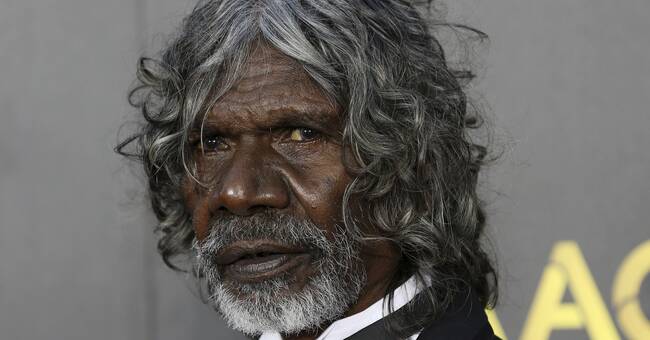David Dalaithngu was discovered in the late 1960s by the British director Nicolas Roeg, who gave him the leading role in "Walkabout - The Man Trial" from 1971. That film, officially British, was one of the earliest and most important in the wave that brought it closest. non-existent and provincial Australian film industry.
When 14-year-old Gulpilil, who barely spoke English and had rarely stayed outside his home area in villages in the north of the country, became a star overnight, flew to Cannes and Hollywood and was very much involved in the country's film boom - not least as the first Aboriginal actor who was actually more than a supporting actor who played a native who the white man wanted to see him.
After all, "Walkabout - The Manna Test" premiered only four years after indigenous peoples began to be counted as people in the official census.
Came from poor village
David Gulpilil Ridjimiraril Dalaithngu, who is his full name, belongs - as a living and deceased - to the Yolngu people and was born in a small, poor village, far from a modern society.
Or as he himself introduced himself in the film "Another country", about his hometown Ramingining in the Northern Territory:
“I am a dancer and an artist, like many of my people.
I'm an actor too, you may have seen me in 'The Storm Boy' or 'Crocodile Dundee' or that movie 'Australia'.
I have won prizes, I have traveled the world, I have hung out with Jimi Hendrix and Bob Marley and I have received a medal from the Queen of England (sic).
Not bad for a black man huh?
I have been in prison too, more than once ”.
Many movies
In addition to the mentioned films, Gulpilil starred in "Rätta virket", the Netflix horror film "Cargo" and the TV series "The leftovers".
This year, the at least fifth feature-length documentary about his life went to the cinema in his home country.
He worked with pretty much every big name in the country's film and television industry and his death was of the dignity that it was announced by the State of South Australia's Prime Minister Steven Marshall.
"An artist unique to his generation who shaped Australian film and how Aborigines are portrayed," Marshall said in a statement.
David Dalaithngu has been suffering from lung cancer for several years and lived his last years in a nursing home in the southern state.
He turned 68 years old.

